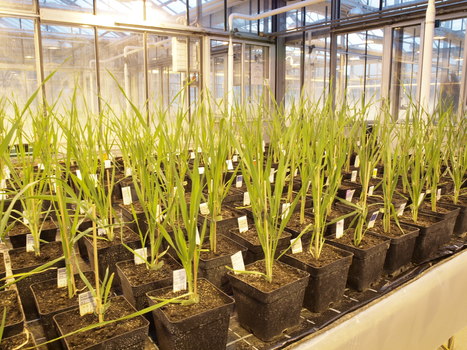Source: Agroscope Newsletter (15.02.2024)
Excerpts: "Agroscope has been granted approval by the Federal Office for the Environment for a field trial with spring barley. The focus is on a barley gene that has been disabled by new breeding techniques. The trial, which will be launched in spring 2024 on the Protected Site in Zurich-Reckenholz and will run for three years, aims to determine whether yields can be increased in this manner. The CKX2 gene is involved in the regulation of seed formation. Disabling this gene by means of a new breeding methods (CRISPR/Cas9 genome editing) brings about increased yields in rice and oilseed rape (see, below, ‘From rice to barley’).
"From rice to barley - Crop yield formation is complex and involves many different genes. However, Japanese researchers have discovered that the mutation of the CKX2 gene in rice has an unexpectedly significant effect on yield. Results were so convincing that they are now used in rice breeding. Research results show that genes corresponding to the CKX2 gene from rice also play a role e.g. in oilseed-rape yield formation. Therefore, it is reasonable to study this effect in further crops. In the best-case scenario, at the end of these trials on the Protected Site it will be possible to issue a recommendation as to whether breeders should disable one or both CKX2 genes in order to boost yields. What is certain, however, is that important information will be provided on the function of the CKX2 genes in barley – and hence further pieces of the puzzle will be available for a better understanding of yield formation."



 Your new post is loading...
Your new post is loading...








